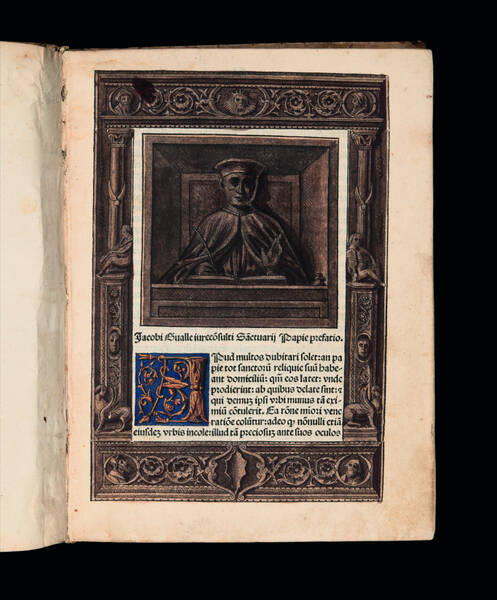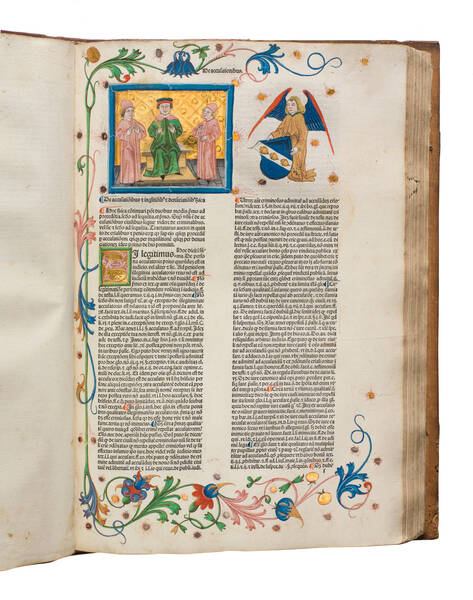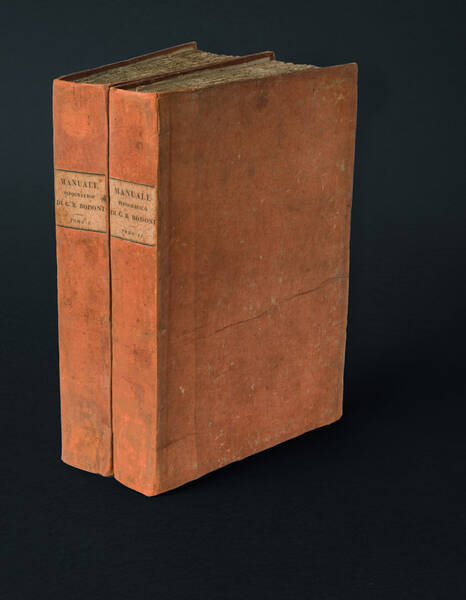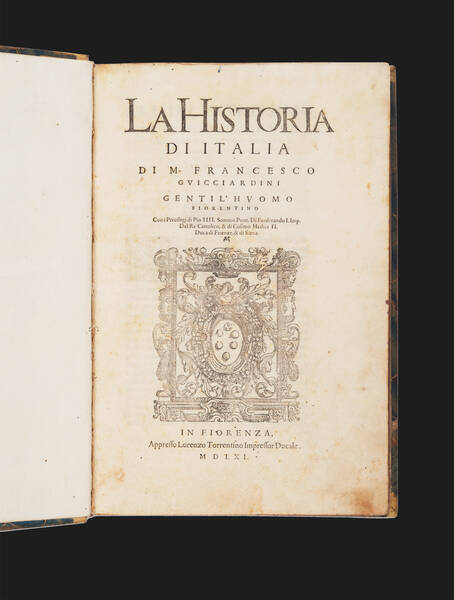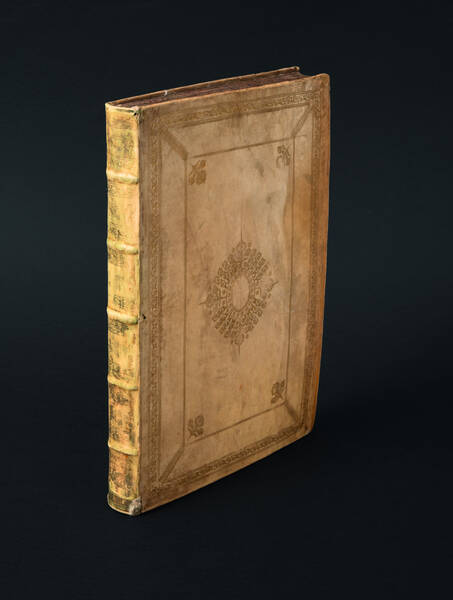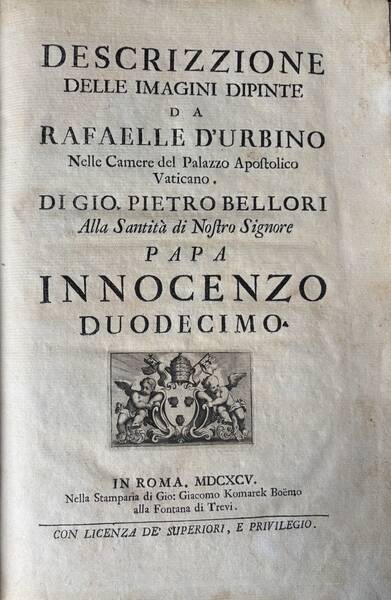GILBERT, William. De magnete, magneticisque corporibus, et de magno magnete tellure; Physiologia nova, plurimis & argumentis, & experimentis demonstrata.
London, P. Short., 1600.Folio (288 x 190mm). Woodcut printer's device on title with Gilbert's arms on verso; folding woodcut diagram; woodcut illustrations in text. Occasional spots, neat repair to fold of folding plate, a blank lower corner of one leaf reattached; a very fine copy in contemporary limp vellum, title in ink on spine (lacking ties, neat repairs to headcap); custom box. Provenance: armorial stamp on title verso – Kenneth E. Hill (bookplate).
First edition of the first major English treatise based on experimental methods; the first scientific treatise on electricity and magnetism.'The magnetic proprieties of the lodestone were known in ancient Greece, but it was only in the late Middle Ages that knowledge of the magnetic spread to Europe from China, where also the mysteries of magnetism had long been studied. But it was with Gilbert, who was physician to Queen Elizabeth I, that the modern development of electricity and magnetism really starts. His book ‘On the Magnet' was the first major English scientific treatise based on experimental method of research. Gilbert was chiefly concerned with magnetism; but as a digression he discussses, in his second book, the attractive effect of amber (electrum), and thus may be regarded as the founder of electrical science. He coined the terms ‘electricity', ‘electric force' and ‘electrict attraction'. His ‘versorium', a short needle balanced on a sharp point to enable it to move freely is the first instrument designed for the study of electrical phenomena, serving both as an electroscope and electrometer. He contended that the earth is a great magnet; he distinguished magnetic mass from weight; and he worked on the application of terrestrial magnetism to navigation. Gilbert's book influenced Kepler, Bacon, Boyle, Newton and, in particular, Galileo who used his theories to support his own proof of the correctnees of the findings of Copernicus in cosmology. It was printed eleven times, four in Latin, six in English and once in Russian'. (PMM)
Norman 905; PMM 107; STC 11883; Wellcome 2830.
Other Books
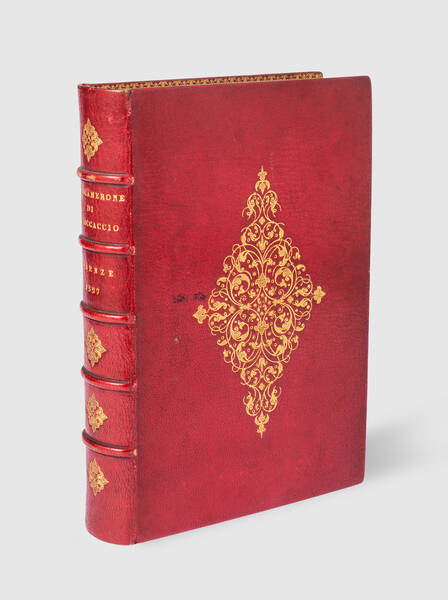
BOCCACCIO, Giovanni
Il Decamerone di m. Giouanni Boccaccio nuouamente corretto et con diligentia stampato.
€ 30.000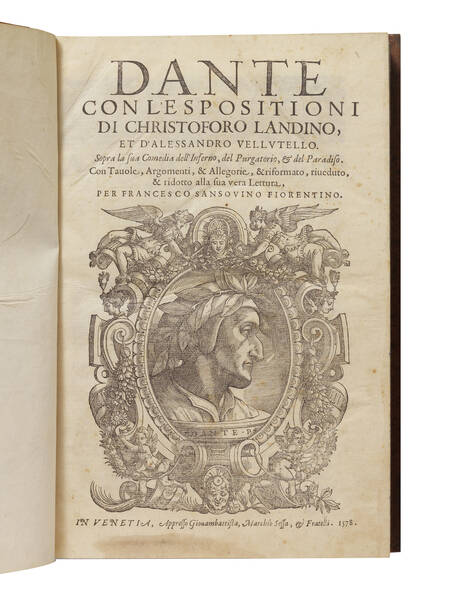
ALIGHIERI, Dante
Dante con l’espositioni di Christoforo Landino, et d’Alessandro Vellutello. Sopra la sua Comedia dell’Inferno, del Purgatorio, & del Paradiso. Con...
SOLD OUT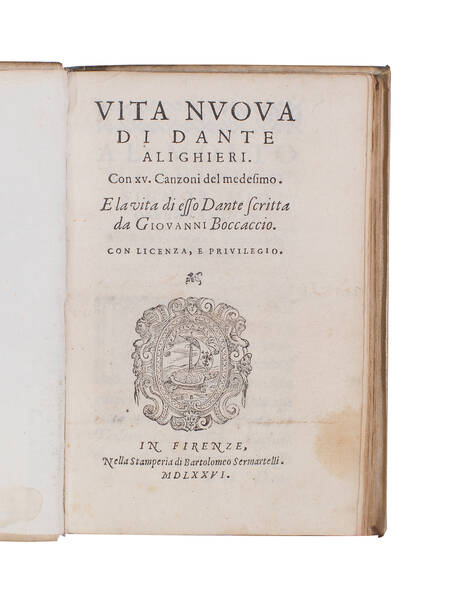
ALIGHIERI, Dante
Vita nuoua di Dante Alighieri. Con XV canzoni del medesimo. E la vita di esso Dante scritta da Giouanni Boccaccio
SOLD OUT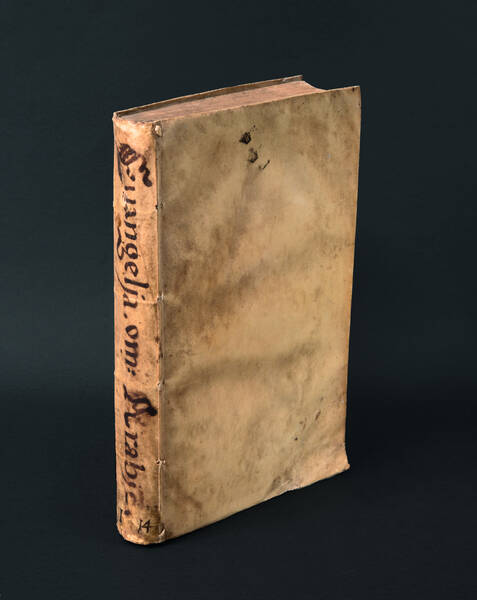
[BIBLIA ARABICA]
Evangelium Iesu Christi quemadmodum scripsit Mar Mattheus unus ex duodecim discipulis eius.
€ 11.000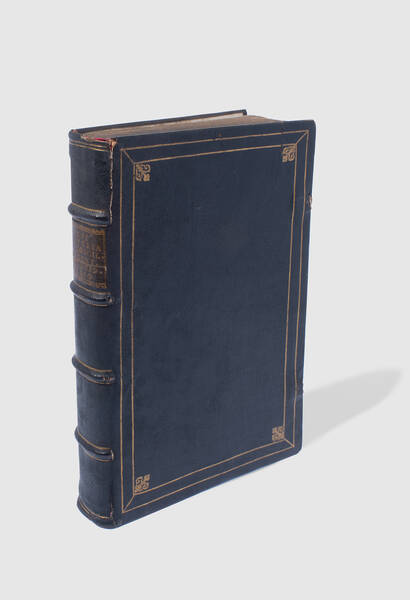
SARPI, Paolo
Historia del concilio tridentino di Pietro Soave Polano. Nella quale si scoprono tutti gl'artificii della Corte di Roma, per impedire che né la...
€ 8.000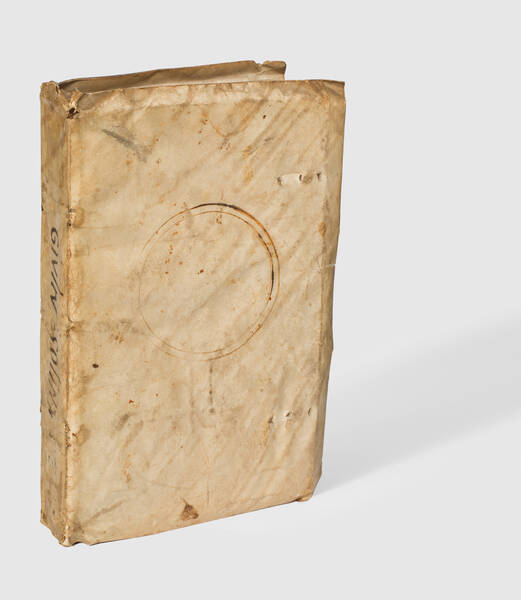
POMPONIUS MELA, IULIUS SOLINUS
Itinerarium Antonini Aug. Vibius Sequester. P. Victor de regionibus urbis Romae. Dionysius Afer de Situ orbis Prisciano interprete
SOLD OUT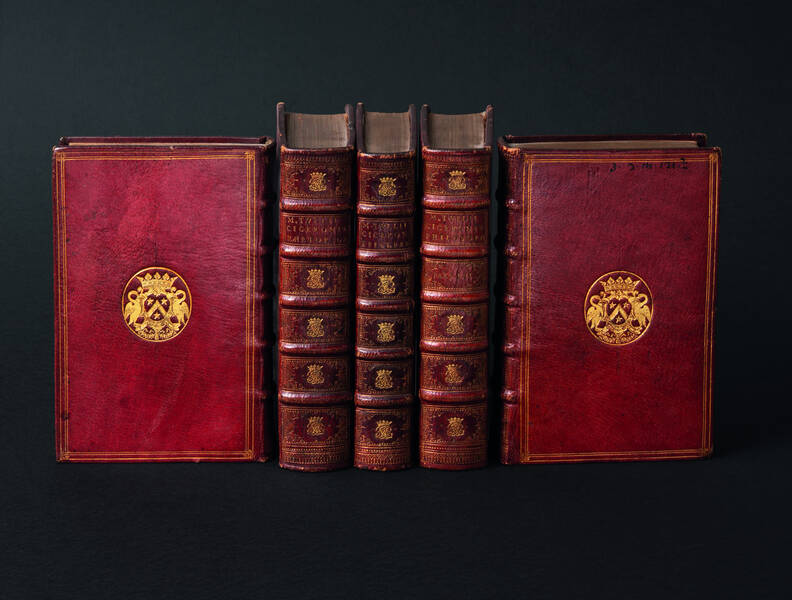
CICERO, Marcus Tullius
De Philosophia (1552) - Officiorum Libri tres (1552) - Rhetoricorum Ad C. Herennium (1550) - Epistolae ad Atticum (1551) - Epistolae Familiares...
SOLD OUT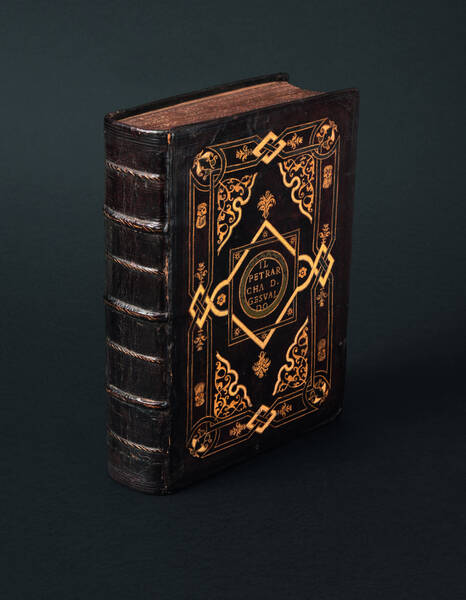
PETRARCA, Francesco
Il Petrarcha colla spositione di misser Giouanni Andrea Gesualdo. I Triomphi del Petrarcha colla spositione di misser Giouanni Andrea Gesualdo da...
SOLD OUTMEDA RIQUIER rare books ltd.
4 Bury Street St James's
SW1Y 6AB London
Phone +44 (0) 7770457377
info@medariquier.com
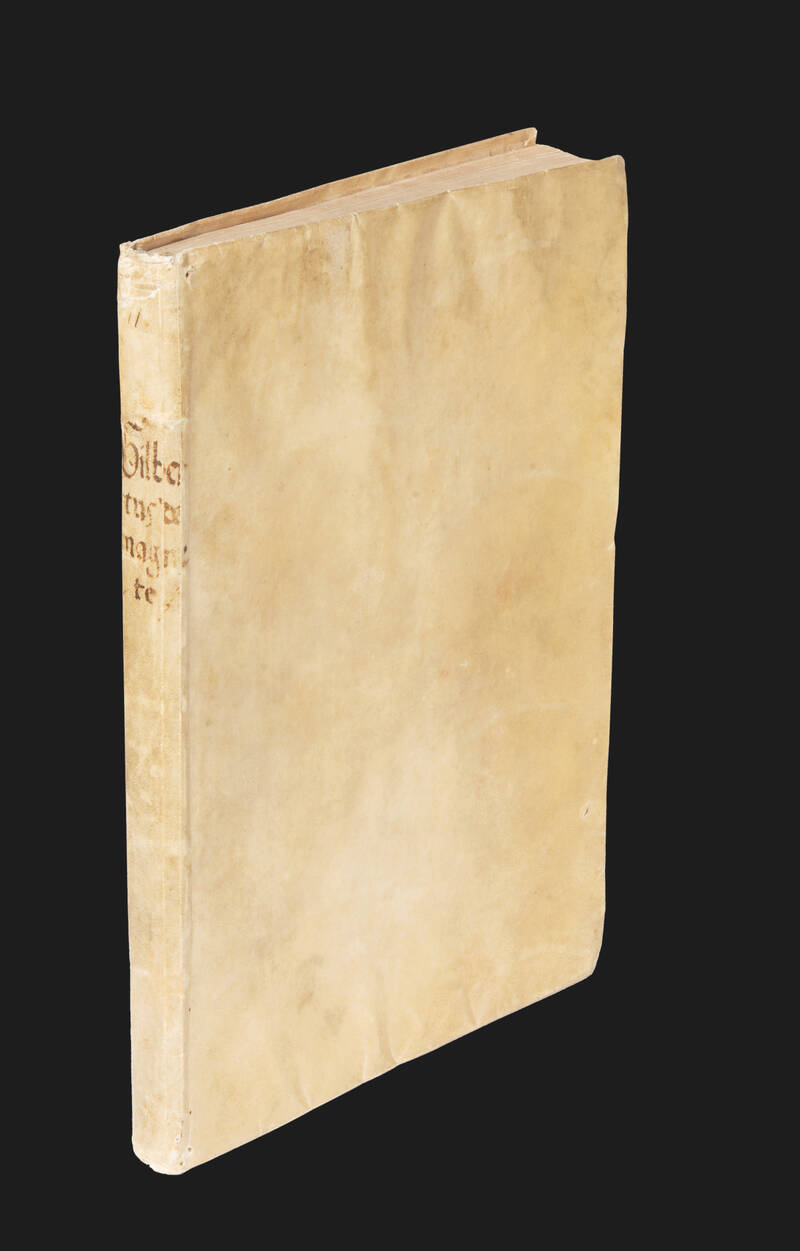
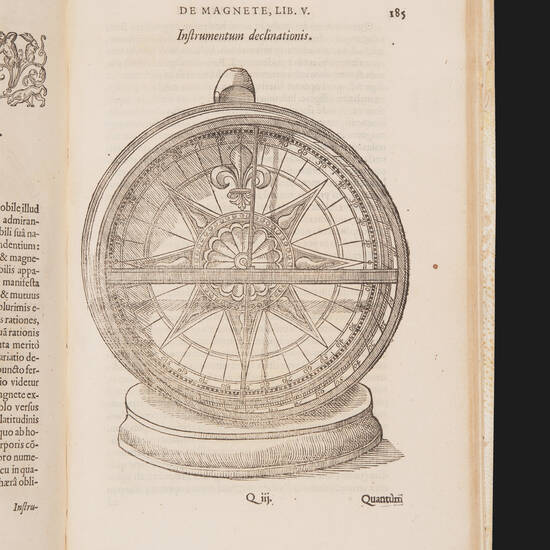
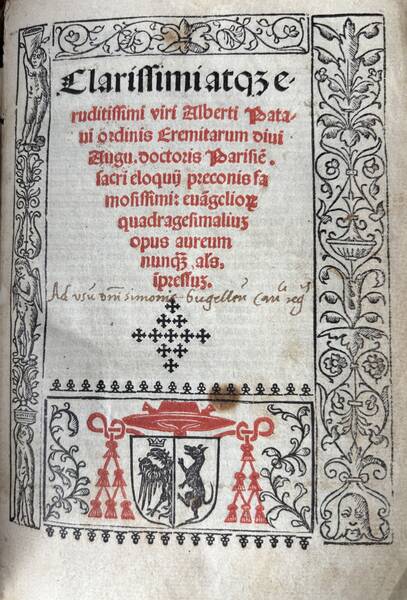
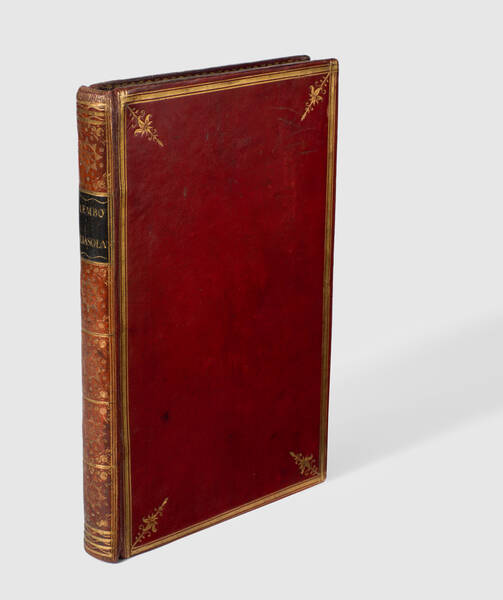
![Opera posthuma [Compendium grammatices linguae hebraeae]. Opera posthuma [Compendium grammatices linguae hebraeae].](https://www.medariquier.com/typo3temp/pics/9e46dbc214.jpg)
